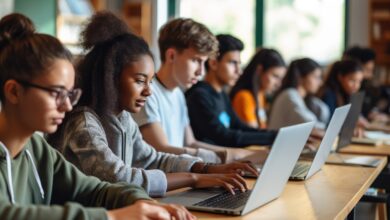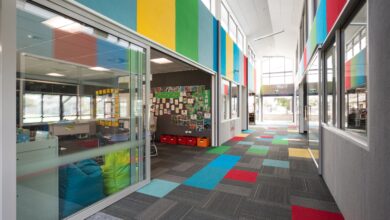Op-ed: The librarian, my students, and I

When I first started teaching research skills I noticed that students, who were supposedly digital natives, did not know how to find information and when they did find any they did not know how to tell if it was any good.
It was as if they had no reference point to tell the good from the bad. So I took it upon myself to teach them: after all, I am a teacher.
Unfortunately for them, and me, I do not come from a research background. Like them, my knowledge of where to find information started and ended with a Google search; unsurprising really, considering I come from a generation that used Encyclopedia Britannica when I wanted accurate information. I would spend lessons talking to students, Googling their topics and suggesting websites where they could find information; basically I was doing their research for them. This approach got minimal results, half of the students would not complete the assignment and the other half would just scrape through. I remember thinking that I could only teach to or expect Achieved; I did not know how to get students working at a higher level.
I remember the first time I was told about Epic database. I excitedly thought, here’s the missing piece of the puzzle! With better sources, surely my students would get better marks. I went into class and told them the school login and hey presto! they were in. I remember how that excitement quickly turned into dejection as students struggled to use the database. Their hands shot up, all vying for my attention. As I walked around the class trying to fix everyone’s problems I realised that using the database wasn’t as easy as I expected. Soon my class gave up using Epic and went back to Google for everything.
Then along came the idea of using the school library and, with it, the school librarian. She was the expert at finding information, able to show them ways of navigating the information superhighway that I didn’t even know existed. After a few meetings with her and some brief planning sessions, we were ready to go.
I booked my class into the library every period for six weeks. The librarian focused on information gathering, checking its reliability, referencing, and plagiarism. I focused on drawing conclusions and presenting the information; in other words, we both played to our strengths, our areas of expertise. During this time, I began to notice something: the students were relying on me less and less for help. Some of this was because they asked the librarian instead, but a lot of it was because they were becoming independent learners. It was an interesting change in student behaviour and one that made me both excited and nervous.
Eventually, the deadline for their assessment task came around; some students met it while others did not. In fact, the number of students completing the assignment on time was about half, the same as before. Heading into the marking phase I was expecting similar results to previous years, but this is where I was pleasantly surprised. The students who did complete the assignment had submitted noticeably better work. Where before my students were largely at Achieved level, I now had a significant increase in the number of Merits and Excellences. What’s more, they solidly met the criteria for these higher grades, they weren’t just scraping over the line.
This was, by any measure, a pleasing result. Students were working more independently and through improved information literacy skills they were gaining a deeper understanding of information.
Moreover, they were able to recognise and use different sets of skills and expertise; in our case, those of the librarian. This really highlighted to me the value of using specialist knowledge to scaffold learner independence.






